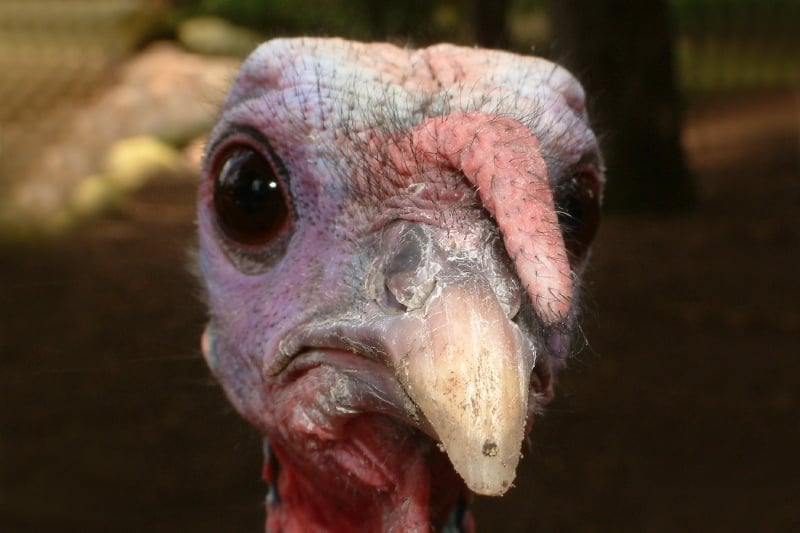
It was only a matter of time but I finally said it: “Shall we drop the turkey this year?”. My husband raised an eyebrow: “really?”. “Well yes” I replied “I find it quite sinister to eat an animal whose sole purpose in life is to grace our Christmas table”.
I started on my flexitarian journey for environmental reasons but lately I have become more sensitive to the plea of animals being raised purely for our consumption. When before it was good enough to know that the animal had had a good life, I am now starting to question the ethics of it all.
CNN reported last month that none of president Obama’s pardoned Thanksgiving turkeys were alive. Heart disease, joint problems etc.. the fast growth breeding techniques create a lot of health issues. Turkeys are just not meant to grow that fast and that big. The emphasis here, you probably have guessed, is on quantity not longevity.
The fate of commercial turkeys is quite different from wild turkeys that go on to live for around 10 years. According to Compassion in World Farming “Modern commercial turkeys are selectively bred to grow much faster and with more breast meat than traditional turkeys. Turkey chicks are typically reared in enclosed, broiler-type sheds, containing thousands of birds. By the time they are ready for slaughter at between 9 and 24 weeks of age, turkeys will weigh between 5kg and 20kg or more”. In 20 weeks, commercial turkey develop larger breasts and weigh twice as much their wild counterpart.
Compassion in World Farming highlights other welfare issues such as overcrowded sheds (leading to the spread of diseases), low lighting (leading to eye damage), de-beaking (done without anaesthetic) and the slaughter (when they struggle before being stunned, causing dislocations and fractures. In the UK, the law allows them to be hung for up to 3 minutes, causing considerable suffering). The Soil Association points out that “modern hybrid turkeys have such heavy breasts that the stags are incapable of serving the hens. Artificial insemination, rather than natural sex, is what keeps these hybrids going”.
Commercial turkey are bred to grow fast with growth-promoting drugs and antibiotics. So on top of welfare issues we also have to question what we are actually eating.
At home, we have always tried to be mindful of the type of turkey we had on our Christmas table choosing free-range or locally raised. As we discussed my idea of going turkey-free this year we started rummaging through options which of course had to take the whole family in consideration. We concluded that going fully vegetarian was not really an option. While it would be fine for us, others would find it too much of a break from tradition.
We looked into higher welfare turkeys and options include organic, free range or higher welfare indoor turkey RSPCA Freedom Food certified. Personally, an indoor bird does not appeal at all, so we narrowed it to organic or free range.
The Soil Association website explains that organic turkeys will not only have access to outside areas (as free range turkeys have), but they also have smaller flock sizes, less birds per square metre and de-beaking is heavily restricted. Organic farms certified by the Soil Association have to provide more pop holes (exits from the hen house) than ‘free range’ farms do, to ensure access to pasture is not restricted.
Organic looks by far the better option. The compromise we reached was to make the turkey the side dish. Hence we are buying the smallest possible certified organic turkey and we will have plenty of vegetarian options to make the bulk of the meal.
Click here for a list of Soil Association’s certified producers





Leave a Reply